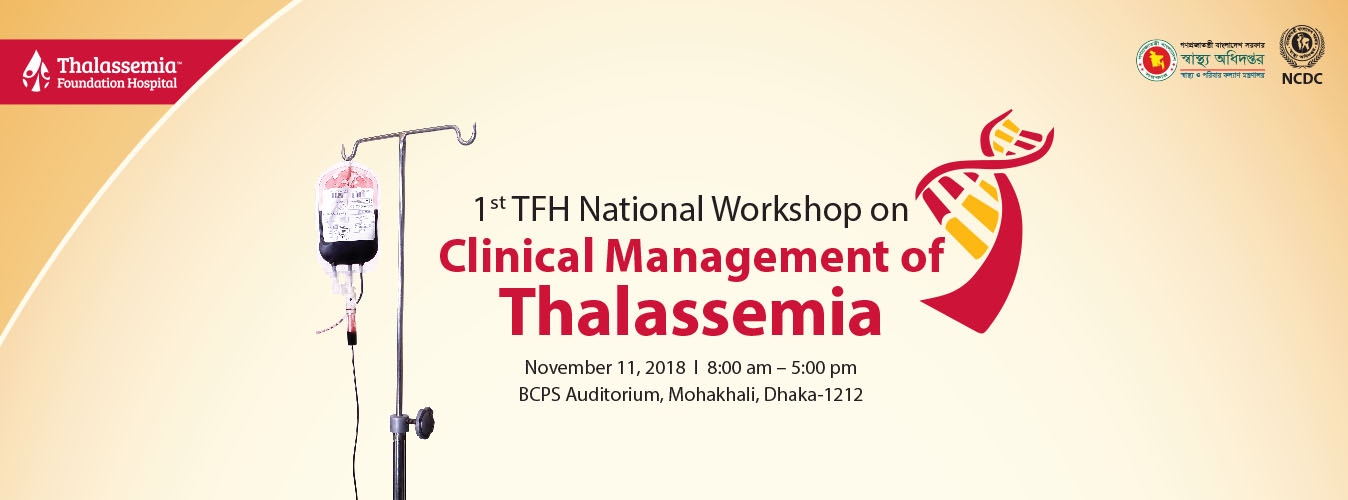Background
Thalassemia is a very common hereditary blood disorder. It is caused by defects in the beta-globin gene resulting in a qualitative and quantitative defect in hemoglobin production. The affected patients suffer from severe anemia.
The management of Thalassemia involves regular blood transfusion, iron chelation, and management of its complications. The treatment is tailored according to clinical severity and following a multidisciplinary approach.
Bangladesh is one of the highly thalassemia affected countries with 7% of the population being thalassemia trait. It is estimated that 7,000 babies are born with thalassemia every year and the total number of patients is 60,000.
Though quite common, the management practice of thalassemia in Bangladesh did not evolve as expected. The treatment widely varies between specialists, hospitals, and parts of the county due to resource limitation, lack of knowledge and a standard practice guideline.
The workshop aims to provide an essential overview on the application of the standard guideline in the management of thalassemia in a resource-constrained setting.


